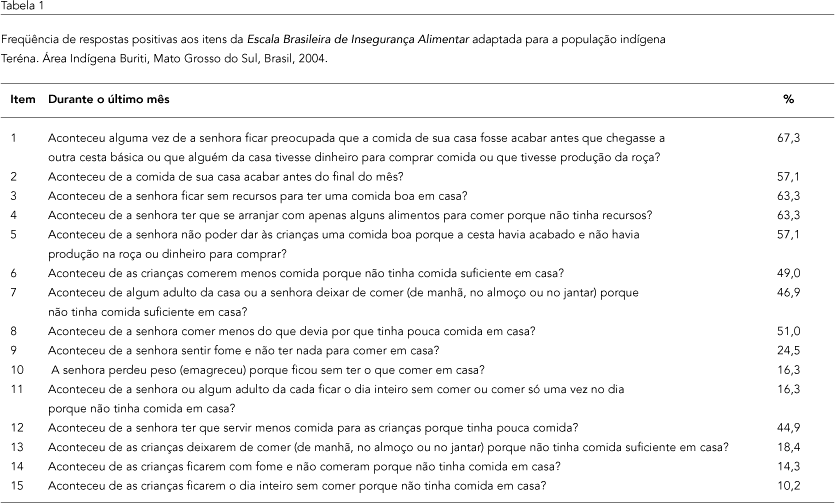This study aims to describe the food security situation among Teréna families in the villages of Água Azul, Olho D'Água, and Oliveiras in Mato Grosso do Sul State, Brazil. The Brazilian Food Insecurity Scale was adapted to 15 questions that reflect food insecurity at different levels of intensity. A survey was conducted in the villages with 49 families that had under-five children. Information was obtained on income, family size, maternal education, and children's food intake. 75.5% of families showed some level of food insecurity (22.4% low, 32.7% moderate, and 20.4% high). A large percentage (67.3%) of the families live with fear of lack of food. One-fourth of women had experienced hunger during the month prior to the survey, and 14.3% (7) reported the same condition for children in the household. More serious food insecurity was observed in families with lower per capita income and lower maternal education, more family members, and more children per family group in which the children's diet was insufficient, especially in protein and iron.
Food Security; Food Consumption; South American Indians; Nutrition Surveys


